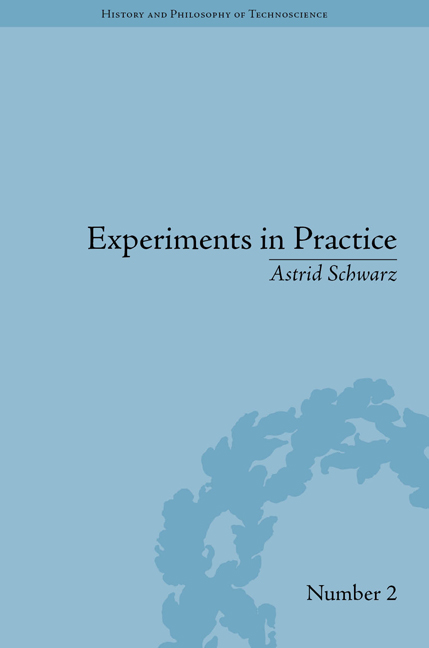Book contents
- Frontmatter
- CONTENTS
- List of Figures
- Introduction: Towards an Experimental Mode in Science, Society and Philosophy
- Part I Questioning the Scientific Method
- Part II Different Modes of Experimentation
- Part III Tirelessly Tinkering with Unruly Conditions
- 7 Stretching the Baconian Contract – but How Far?
- 8 About the Epistemology and Culture of Borders/Boundaries
- 9 Excursus: ‘Bridging Science’ or ‘Problem-Based Science’?
- Part IV Practising Experiments in a World of Environmental Concerns
- Conclusion: Experiments in Practice – the Work of Experiments
- Notes
- Works Cited
- Index
8 - About the Epistemology and Culture of Borders/Boundaries
from Part III - Tirelessly Tinkering with Unruly Conditions
- Frontmatter
- CONTENTS
- List of Figures
- Introduction: Towards an Experimental Mode in Science, Society and Philosophy
- Part I Questioning the Scientific Method
- Part II Different Modes of Experimentation
- Part III Tirelessly Tinkering with Unruly Conditions
- 7 Stretching the Baconian Contract – but How Far?
- 8 About the Epistemology and Culture of Borders/Boundaries
- 9 Excursus: ‘Bridging Science’ or ‘Problem-Based Science’?
- Part IV Practising Experiments in a World of Environmental Concerns
- Conclusion: Experiments in Practice – the Work of Experiments
- Notes
- Works Cited
- Index
Summary
The preceding discussion of the renewal of the Baconian contract and the emergence of an experiment-driven society implies a transgression of boundaries in several respects. As mentioned above, when science acts as an agent of societal change, much of it turns into field experimentation and thus goes beyond the boundaries of laboratory research. More than this, though, the growing demand for public engagement to shape and control this scientifically inspired knowledge production affords the requirement to turn science and technology into a democratic endeavour – at least if participatory principles are part of the society's shared system of values. However, there are also other modes of transgression involved which refer to longer-standing areas of conflict, mainly within the domain of science itself. ‘Transgressing the boundaries’ was the title of a paper smuggled by physicist Alan Sokal – Trojan horse-like – past the peer review system into the well-respected journal Social Text. The paper was a parody of social constructivism and served to intensify an already ongoing controversy between scientists and social scientists that came to be called the ‘science wars’. Here, the notion of ‘transgressing the boundaries’ was reduced to absurdity; Sokal's article served to debunk the apparent ignorance of science critics, their intellectual laziness and lack of sincerity regarding their objects, science and technology.
- Type
- Chapter
- Information
- Experiments in Practice , pp. 123 - 136Publisher: Pickering & ChattoFirst published in: 2014

